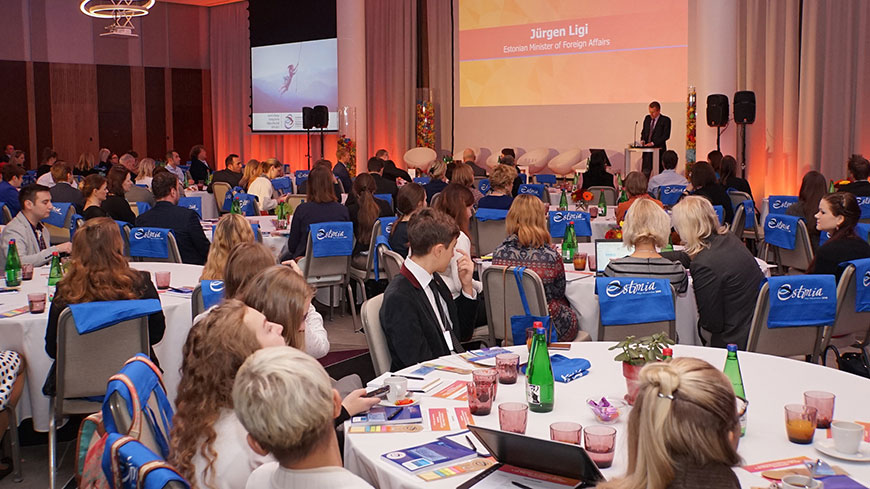An international conference on Children’s rights in the migration crisis and the digital environment is taking place in Tallinn, Estonia from 3 to 4 November 2016. It is held under the current Estonian Chairmanship of the Committee of Ministers of the Council of Europe.
In his opening speech, Estonian Minister of Foreign Affairs Jürgen Ligi said: “Children´s rights have been one of our priorities of our Chairmanship. Estonia has placed emphasis on three key aspects: child participation, children’s rights in the digital environment and children in migration which are the main areas of the new Strategy for the Rights of the Child of the Council.”
According to the latest statistics by UNHCR, since the beginning of 2016 more than 27% of the 333,940 people who arrived in Europe by sea have been children, a large percentage of these being unaccompanied minors. “The vulnerable status of migrant children makes them easy target to exploitation, human smuggling and trafficking,” Ligi said. “Our duty is to protect them, to reduce the risks involved for both the migrant children and our societies.”
The keynote speaker of the conference Nils Muižnieks, the Council of Europe’s Commissioner for Human Rights, said: "One of the fundamental obligations of a state is to protect children’s rights and take decisions that reflect their best interests. Despite progress in that direction, much remains to be done in Europe today, in particular as regards migrant children, who are often very vulnerable, and ensuring that children are empowered, not endangered, in the digital environment. States should implement more resolutely the Council of Europe’s standards in this field."
The learning possibilities presented by information and communication technologies and digital media, the role of schools and parents in the process, as well as the hidden risks of the “enchanted forest” of the Internet are discussed during the event. Practitioners, academics and experts from the Council of Europe, UNICEF and other organisations, as well as children’s ombudsmen, authorities and children themselves are taking part in the Conference.


